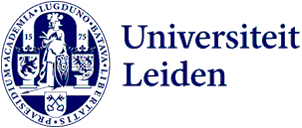Lecture | VVIK lecture
Vedic mantras and rituals and their Avestan parallels: Toward the reconstruction of Indo-Iranian formulae and liturgical structures
- Date
- Wednesday 8 November 2023
- Time
- Explanation
- The lecture will be followed by drinks in the basement of Matthias de Vrieshof 3
- Address
-
Lipsius
Cleveringaplaats 1
2311 BD Leiden - Room
- 1.33
Abstract
Ever since the beginning of Indo-European Studies, the comparative evidence of Ancient Indic and Iranian texts played a decisive role in the reconstruction of Proto-European grammar, sacred texts, myths and rituals. On the one hand, there are strong linguistic correspondences between the Old Indic of the Vedas and the oldest Iranian languages in the framework of all linguistic subsystems, from phonetics and phonology, incl. prosody, via morphology and morphophonology, up to lexicon, syntax, and phraseology. On the other hand, Indic and Iranian cultures, esp. ritual and religious traditions, represent a rare and lucky case in which, after the split of the earlier (Indo-Iranian) language community, its two main branches remained in close language contact also later on, in a complex system of areal relations that has been leading to serious mutual influences up to modern times. The study of the formal and semantic parallels of ritual elements and their compositional arrangement brings us to crucial discoveries.
Indo-Iranian ritual tradition is transmitted to us in two branches – an Old Indic (the Vedas) and an Old Iranian (the Avesta) – which exhibit a series of impressive parallels but also notable differences. A reconstruction of a common Indo-Iranian ritual elements is only possible when we employ the data of both complexes of sources. We find routine-by-routine and even word-by-word correspondences between liturgical formulae, lists and catalogues of the two language traditions: After earlier comparisons of sounds and word-formations, now is time to compare entire ritual litanies and liturgies contained in the Vedic Saṃhitās, Brāhmaṇas and Sūtras and the Avestan liturgical complexes of Yasna, Visprad and Vidēvdād. The correspondences in ritual, myth and religious notions and systems have deep relevance on theological, cosmological and anthropological levels.
Indic and Iranian ritual texts, cosmogonic myths and magic spells contain clear formulaic, poetic, and metatextual correspondences whose common Indo-Iranian background is evident: in some cases, one can directly translate a poetic formula from Avestan to Vedic Indian! What has largely lacked so far, was a systematic comparison on an inter-textual level of sacred texts, cultic activities, liturgies and ritual complexes, in which the oldest Indic and Iranian texts were usually embedded as powerful ‘performative speech acts’, as prayers, hymns, multipartite formulae and litanies. The present paper will discuss these topics and show a series of relevant correspondences between the rich Vedic and Avestan traditions.

Velizar Sadovski
Assoc. Prof. Dr. habil. Velizar Sadovski is a specialist in Comparative Indo-Iranian Linguistics. He is Senior Research Associate at the Austrian Academy of Sciences (ÖAW) and Privatdozent of Indo-European Linguistics teaching at the Universities of Vienna and Salzburg. His main research fields are Vedic and Avestan philology and linguistics (in particular, word formation, lexicology and morphosyntax), history of Indo-Iranian sacred texts and ritual pragmatics, language of Indo-European poetry. Sadovski is Editor in-Charge of the series Iranisches Personennamenbuch and Grammatica Iranica (Vienna), Indo-Iranica et Orientalia (Milan) and Indogermanische Textlinguistik, Poetik und Stilistik (Hamburg). Among other functions, he is Board Member and Member of the Executive Committee of the World Philology Union, Board Member of the Italian Association of Central Asian and Caucasian Studies (ASIAC), Board Auditor of the Societas Iranologica Europaea, Member of the Advisory Boards of the Indo-Iranian Journal (Leiden / New York). At Leiden, he has been teaching for almost two decades at the Leiden Summer School in Languages and Linguistics (Sanskrit, Avestan, Indo-European, Social History of Vedic India). In 2023, he has received a grant from the J. Gonda Foundation of the Royal Netherlands Academy of Arts and Sciences (KNAW) to spend six months doing research at the International Institute for Asian Studies (IIAS) in Leiden.
